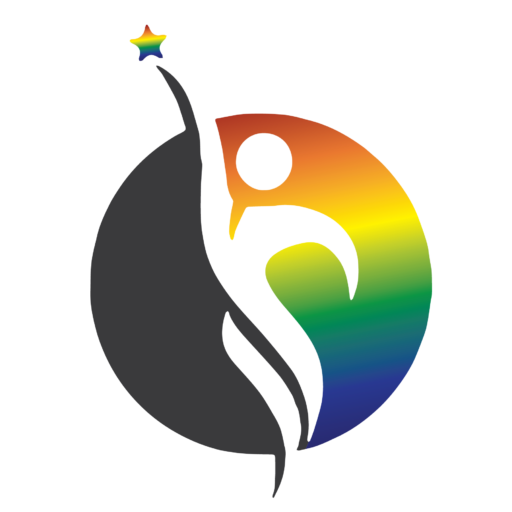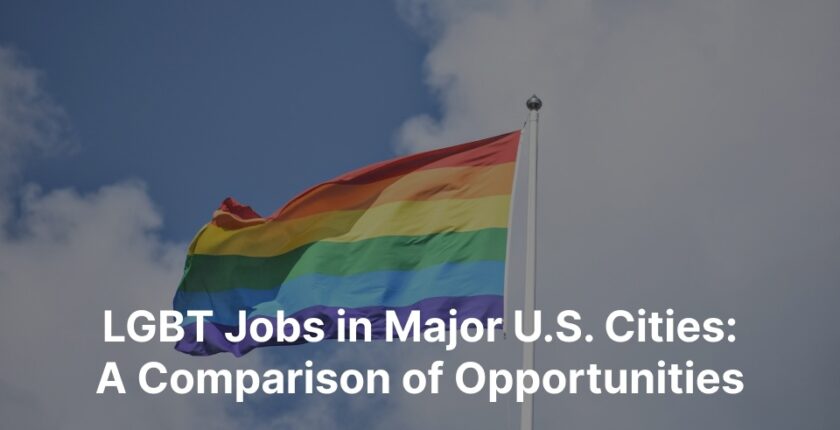LGBT Jobs in Major U.S. Cities: A Comparison of Opportunities
For decades, the United States has seen a rising emphasis on creating inclusive workplaces, especially for the LGBT community. But how does one decide which city is best suited for their career aspirations?
Whether you’re targeting high-tech roles, creative industries, or leadership positions in nonprofits, location can influence not just your paycheck, but also your quality of life and sense of belonging. We’ll dive into several major U.S. cities renowned for their LGBT-inclusiveness—ranging from historic strongholds like San Francisco to rapidly evolving hubs like Atlanta.
We’ll explore job prospects, local cultural attitudes, key industries, and how dedicated resources like joboard.lgbt can guide you toward opportunities that embrace your full identity. If you’ve ever wondered where to put down roots—or even just spend a few years building your resume—read on for a city-by-city comparison that highlights how thriving these locations can be for LGBT professionals.
Why Focus on LGBT-Friendly Cities in the U.S.?
Impact of LGBT-Inclusive Policies
Cities with robust anti-discrimination laws typically foster safer, more welcoming environments for LGBT individuals. These policies often mandate equal treatment in areas like employment, housing, and public accommodations, reducing the risk of prejudice at work.
When city governments actively promote inclusivity, local businesses tend to follow suit, adopting more progressive policies like comprehensive healthcare benefits and diversity training.
Economic and Cultural Advantages
Beyond legislation, LGBT-friendly cities often feature thriving cultural scenes, from Pride parades to LGBT film festivals and community centers. Such events are more than just celebrations—they’re also networking opportunities.
Employers based in these cities frequently form partnerships with local advocacy groups, creating an ecosystem where career opportunities and social support intersect. When a city invests in inclusivity, it’s not just good politics—it’s also good business.
Key Factors That Influence LGBT Job Opportunities

On a national scale, the U.S. has made strides with federal protections. However, the local climate can vary widely. In certain states or counties, explicit protections extend beyond federal requirements, covering not just sexual orientation but also gender identity.
This extra layer of legal security can be a game-changer for LGBT professionals worried about workplace bias. Cities that are home to Fortune 500 companies or bustling startup ecosystems usually boast strong LGBT job markets.
These employers may offer robust Employee Resource Groups (ERGs), mentorship programs, and opportunities to influence company policy. Tech giants, large banks, and consulting firms often lead in championing inclusive workplaces, allocating budgets to support LGBT charities and networking events.
New York City
New York City hardly needs an introduction. As one of the world’s foremost financial centers, it offers a vast array of roles in banking, asset management, and FinTech. Meanwhile, the city’s media and entertainment sectors also employ armies of creative professionals, from advertising execs to Broadway producers.
Vibrant LGBT Advocacy Scene
It’s the birthplace of the modern LGBT movement—think Stonewall. And that activism continues today, anchored by organizations like The LGBTQ Community Center and GLAAD. These groups advocate for policy changes, provide resources, and connect job seekers with LGBT-friendly employers.
Types of LGBT Jobs Available
- Finance and Consulting: Big banks and consulting firms pride themselves on inclusion, offering DEI training and extensive benefits.
- Media and Publishing: Numerous magazines, newspapers, and publishing houses seek editors, writers, and producers who bring diverse viewpoints.
- Nonprofits: The city hosts countless nonprofits focused on LGBT rights, health, and community-building—ideal for those seeking mission-driven work.
San Francisco
Silicon Valley’s influence on San Francisco is undeniable. From Google to smaller AI-driven startups, the Bay Area’s tech industry leads globally in innovation. Many tech giants rank high in corporate equality indices, boasting inclusive benefits and employee resource groups tailored to LGBT staff.
Historical Significance for LGBT Community
San Francisco’s Castro district has long been a mecca for LGBT culture, activism, and community. The city’s Pride celebration is among the oldest and largest, spotlighting local nonprofits and offering volunteer and networking opportunities galore.
Balancing High Living Costs and Salaries
It’s no secret that San Francisco is pricey. However, tech salaries and nonprofit leadership roles often offset these expenses, if only partially. Professionals must weigh the benefits of progressive work environments and a robust community against the reality of soaring rents and day-to-day costs.
Los Angeles
Los Angeles is synonymous with Hollywood—but its job market extends beyond film sets. Television networks, music labels, and digital content platforms thrive here. LGBT individuals keen on creative pursuits—be it screenwriting or digital marketing—will find ample ground to exercise their talents.
LGBT Community Networks
With neighborhoods like West Hollywood serving as cultural epicenters, LA fosters strong community ties. Local organizations and clubs frequently hold events, offering everything from professional development workshops to casual mixers. These can be ideal settings to find mentors, collaborators, and career leads.
Government and Nonprofit Work
Beyond showbiz, LA hosts countless nonprofits working on social issues—homelessness, mental health, and youth programs. Many also have dedicated initiatives for LGBT populations. Jobs in government agencies—like the County of Los Angeles Public Health Department—may also intersect with LGBT advocacy or healthcare.
Chicago
Chicago is home to corporations like Boeing, McDonald’s, and United Airlines. Many of these Fortune 500 companies have robust employee resource groups and nondiscrimination policies. If you’re eyeing the corporate world, Chicago’s job market offers opportunities in finance, marketing, and logistics.
Advocacy and Nonprofit Opportunities
The Windy City boasts a flourishing nonprofit sector, addressing everything from HIV/AIDS awareness to trans healthcare access. The Center on Halsted, for instance, is a leading community resource for LGBT folks, providing mental health services, job training, and networking events.
Navigating a Diverse Economy
Healthcare, manufacturing, and tech also play significant roles in Chicago. Depending on your background, you’ll likely find a niche that values diverse perspectives. Plus, the city’s cultural scene—festivals, theatre, music—means you’ll rarely be at a loss for social activities or volunteer gigs.
Seattle
Amazon and Microsoft put Seattle on the global tech map, and the region’s innovative spirit attracts a constant flow of startups. LGBT employees often cite inclusive policies, robust health benefits (including trans-specific coverage in some companies), and welcoming office cultures as perks.
Progressive Policy Environment
Seattle leans liberal politically, translating into city-level legal protections for LGBT residents. Strict anti-discrimination ordinances apply in workplaces and public spaces, creating a sense of safety for employees.
Quality of Life Factors
Outdoor enthusiasts love Seattle’s proximity to mountains, lakes, and forests. Add to that a thriving coffee culture, a dynamic music scene, and a strong sense of environmental consciousness, and you have a city that appeals to a broad swath of LGBT professionals.
Washington, D.C.
If public service interests you, the nation’s capital offers unparalleled access to government agencies, lobbying firms, and advocacy organizations. Legislative assistants, policy analysts, and public affairs specialists can find roles that directly shape LGBT-related laws.
Think Tanks and Research Organizations
D.C. also houses think tanks focusing on everything from global relations to social justice. For LGBT professionals with research or academic backgrounds, these organizations can be a gateway to influencing policy at both national and international levels.
Cultural Acceptance and Inclusivity
D.C. hosts a vibrant LGBT scene, especially in neighborhoods like Dupont Circle. Pride events, film festivals, and community forums are a regular fixture, helping newcomers integrate into a socially conscious local culture.
Atlanta
Atlanta may surprise newcomers with its progressive vibe, at least within the city limits. Known for Southern hospitality, the city has become a magnet for tech startups, film production (courtesy of the booming “Hollywood of the South”), and Fortune 500 companies.
Corporate Community and ATL Pride
Brands like Coca-Cola, Delta Air Lines, and Home Depot call Atlanta home—many with robust LGBT employee groups. Meanwhile, the Atlanta Pride Festival is one of the largest in the Southeast, reflecting a robust local community that fights for inclusivity and visibility.
Unique Challenges and Growth Areas
While the metro area is generally welcoming, Georgia’s statewide protections aren’t as robust as in some other states. But the city of Atlanta has passed ordinances that safeguard LGBT residents. Younger LGBT professionals, especially, find the mix of affordability and job prospects appealing, even if navigating certain conservative pockets remains a challenge.
Boston
Harvard, MIT, and a slew of other major universities make Boston a hotspot for academia-focused LGBT job seekers—particularly in research and administrative positions. Healthcare, too, is a big deal here, with hospitals like Massachusetts General leading the way in inclusive patient care.
Progressive Political Climate
Massachusetts was the first state to legalize same-sex marriage, setting the stage for broader acceptance of LGBT rights. Boston’s local government actively supports diversity, reflected in citywide initiatives that promote inclusive housing, employment, and public services.
Thriving Startup Scene
Beyond the academic heavyweights, Boston boasts a blossoming tech startup community, especially around the Seaport and Cambridge areas. With a drive toward biotechnology and clean energy, many of these newer firms are eager to hire individuals with diverse viewpoints to fuel innovation.
Comparing Cost of Living and Salaries

Housing, Transportation, and Overall Expenses
- New York and San Francisco tend to top the charts for living costs. High salaries might offset these expenses, but you’ll need a careful budget.
- Seattle, Los Angeles, and Boston fall into the mid-to-high range. Housing can be pricey, but so are average incomes in tech, healthcare, and creative industries.
- Chicago and Atlanta typically offer more affordable housing, making them attractive for younger professionals or those not chasing the highest salaries.
Average Salaries in Various Sectors
- Tech Roles: Consistently higher in SF, Seattle, and NYC.
- Finance and Consulting: New York still reigns, with Chicago as a close runner-up.
- Nonprofit and Advocacy Work: Pay can be lower than in corporate roles, but major cities like D.C., NYC, and San Francisco often have better funding for nonprofits, leading to more competitive salaries.
Role of joboard.lgbt in Finding City-Based LGBT Jobs
Typing “LGBT-friendly” into a generic job board can bring mixed results. joboard.lgbt aims to bridge that gap by vetting employers and postings. You can filter by location and industry, seeing only listings from companies that prioritize safe and inclusive workplaces.
joboard.lgbt often features testimonials from individuals who’ve successfully navigated job searches in these major cities. These stories can offer not just inspiration, but also practical tips on networking and what to expect in different work cultures.
Strategies for Landing an LGBT-Inclusive Role
Networking and Community Engagement
Local LGBT chambers of commerce, Pride organizations, and community centers can be goldmines for job leads. Volunteering or attending workshops isn’t just altruistic—it also expands your network, potentially connecting you to your next employer.
Resume and Interview Tips
- Highlight Relevant Advocacy: If you’ve participated in Pride organizing or led an LGBT student group, that leadership experience can stand out.
- Research Company Culture: Look up a prospective employer’s DEI policies, employee resource groups, and social media engagement.
- Be Ready to Talk About Identity: If you choose to disclose your orientation or gender identity, be prepared to demonstrate how your unique perspective can be an asset.
Future Trends in LGBT Employment in U.S. Cities
The pandemic accelerated a remote work revolution, giving employees more freedom to choose where they live. LGBT professionals can seek inclusive employers in major cities without physically relocating, although many still move for the cultural community and networking advantages.
In the future, we’ll likely see more corporations issuing detailed reports on their diversity metrics, including LGBT representation at leadership levels. Consumer activism and social media scrutiny push these companies to go beyond token gestures—benefiting job seekers who prioritize authenticity.
Conclusion
Choosing where to live and work as an LGBT professional is more than a simple cost-benefit calculation—it’s a chance to find both career growth and community. Major U.S. cities like New York, San Francisco, Los Angeles, Chicago, Seattle, Washington D.C., Atlanta, and Boston offer diverse opportunities across industries, from tech and finance to nonprofit advocacy and the arts.
Each city brings its own blend of cultural vibrancy, legal protections, and economic realities. While high living costs can be an obstacle in places like San Francisco or New York, the professional networks, salary potential, and community support often make them worthwhile. Wherever you decide to plant your roots, remember that resources like joboard.lgbt can streamline your job search by connecting you with inclusive employers.
And once you’re there, community engagement—through local LGBT centers, mentorship programs, and advocacy events—can enrich not just your career trajectory but your sense of belonging. With thoughtful planning and the right resources, you can find a city that respects your identity, fosters your ambitions, and helps you shape a fulfilling future.
FAQs
That depends on your comfort level. If you prefer an environment that fully embraces diversity, mentioning LGBT-related work can help attract the right employers. If you’re concerned about discrimination, you can opt for more neutral language but still highlight the relevant skills you gained.
You can include the name and pronouns you currently use on your resume. If legal documents differ, consider explaining that briefly in a cover letter or during the interview process to clear up any discrepancies.
Potentially, yes—but that also helps you identify employers who might not be inclusive. Many progressive companies actually see such experience as a plus, showcasing leadership and empathy.
Incorporate relevant job description terms like “DEI,” “LGBT advocacy,” or “community outreach” if they align with your background. Check each posting’s list of requirements and weave them into your resume naturally.
You can use a foundational resume for all applications, but tweak it slightly to match each position. If a role explicitly emphasizes diversity, highlight your advocacy experiences more prominently. For general roles, you can still keep mentions of volunteering but focus on the overarching skills—like project management or teamwork.

